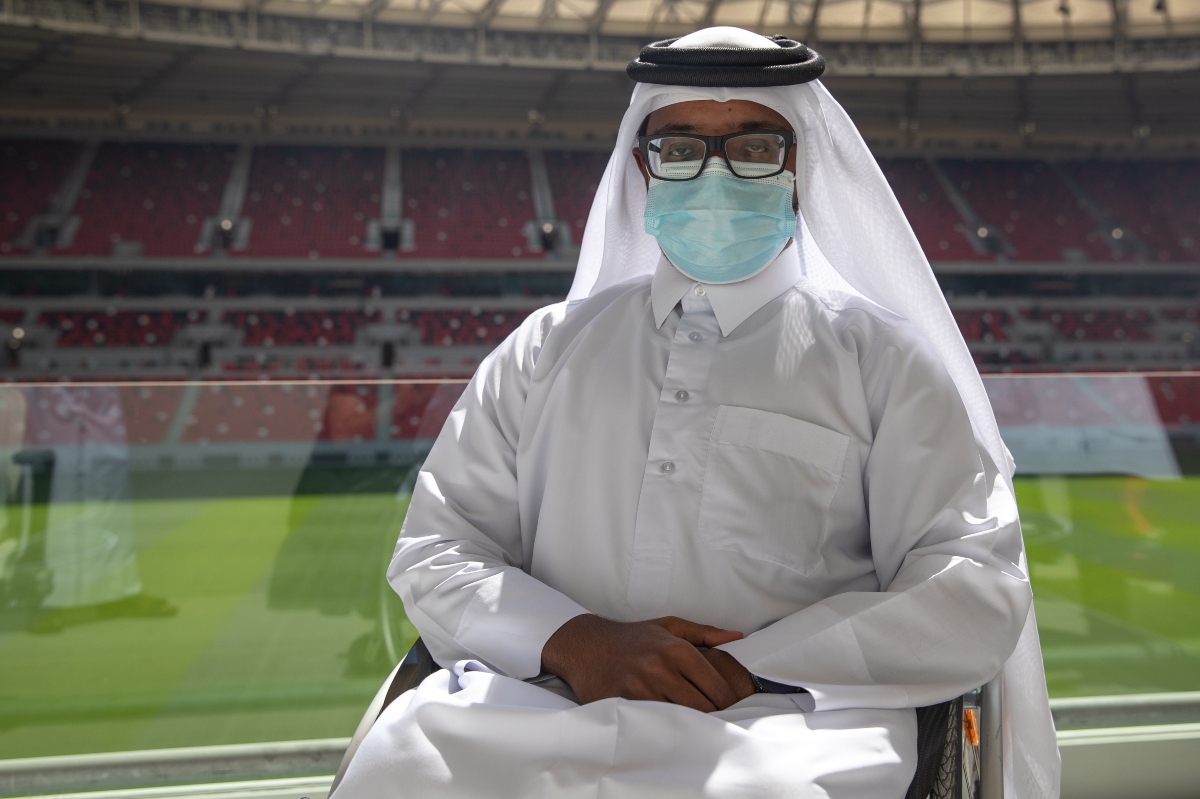

The Supreme Committee for Delivery & Legacy (SC) recently participated in the 46th session of the United Nations Human Rights Council (UNHRC). Bodour Al Meer, the SC’s Sustainability Director, took part in a panel discussion that focused on the rights of people with disabilities to have equitable access to sports activities, facilities and events.
The two-hour session was chaired by H.E. Nazhat Shameem Khan, President of the UNHRC, and included a series of video messages that discussed enabling persons with disabilities to participate in recreation, leisure and sports on an equal basis. The Permanent Mission of the State of Qatar to the UN supported the SC’s participation in the event.
With under two years to go until the first FIFA World Cup™ in the Middle East and Arab world, Al Meer discussed the many measures put in place to ensure the tournament offers what she described as “a safe, dignified and independent” experience for fans with disabilities and limited mobility.
“We are hard at work preparing for the event to be as accessible as possible. Our goal is for the event to be accessible for all people,” said Al Meer before outlining the different touchpoints of a person’s journey, identified as part of the tournament’s accessibility plans.
First, Al Meer addressed match tickets, stating that FIFA will allocate dedicated accessible seating for fans with disabilities or limited mobility at all stadiums. Once fans have purchased tickets, Al Meer discussed how Qatar Airways, the country’s national carrier, has several accessibility services in place to support all travelers. She also mentioned that tournament organisers are in touch with the airline to ensure that passenger services are fully optimised during Qatar 2022 to ensure a truly accessible experience.
Al Meer also discussed the availability of accessible accommodation, stating: “A range of accessible accommodation options are available, including accessible rooms at major international hotel chains, cabins on board moored cruise liners or apartment hotels.”
“Once they’ve landed, fans will experience barrier-free access, accessible check-in counters, accessible washrooms and specialised services, as well as a dedicated lounge. This is something that our stakeholders have been working hard to deliver – and will continue to refine,” Al Meer added.
Qatar 2022 is set to be the most compact tournament in modern history with the distance between the eight stadiums ranging between 5km and 75km. This will potentially enable fans to attend more than one match per day during the early stages of the tournament. At the heart of this unique experience will be a modern transportation system that will connect fans across stadiums, accommodation, fan zones and numerous cultural sites. There will be no air travel between matches, with all visitors able to stay in the same accommodation throughout the tournament.
Al Meer assured the audience that fans with disabilities will be able to enjoy the compact nature of the tournament by making use of the Doha Metro, which boasts a fully accessible network across its 37 stations. Fans with disabilities, particularly wheelchair users, can also make use of a growing fleet of accessible taxis, made available around the clock by Mowasalat, the country’s national taxi service provider.
With reference to the accessibility features of the venues set to host matches during the tournament, Al Meer stated: “The heart of the tournament – the stadiums – have all the necessary facilities for everyone to have a great experience. This includes getting to and from the stadium, watching the match from a comfortable seat, buying a drink and something to eat. They also include assistance through specially trained staff and volunteers.”
The SC established an Accessibility Forum in 2016 to facilitate input and user testing from the disabled community in Qatar. “This forum is made up of 80 people from 25 different organisations and aims to ensure a seamless fan experience for people with disabilities during the tournament, through testing, evaluating and consulting on plans before they are implemented to ensure the best outcomes,” said Al Meer.
As a result of ongoing consultations through the Accessibility Forum, Al Meer pointed to improvements made through the provision of accessibility training to all tournament volunteers, the upgrade of accessibility features at entertainment venues across the country and the installation of sensory rooms in stadiums to provide a managed space for children with Autism.
Al Meer concluded by stating that, “The pace of development across Qatar is truly remarkable, and it is guided by our National Vision for 2030, which sets out a blueprint for where we aim to be in just under ten years’ time. This includes making sure that people with disabilities are fully integrated and active participants across all aspects of society.”

